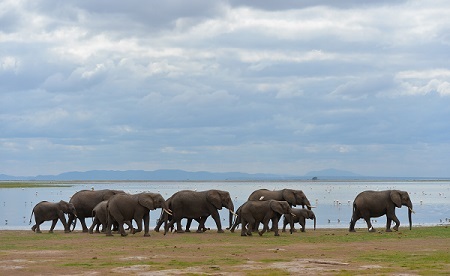Kenya's elephant population has gradually increased at an annual rate of approximately 2.8 per cent over the last three decades amid declining poaching, a wildlife research institute said.
The state-owned Wildlife Research and Training Institute (WRTI) said on Sunday that the country has experienced about a 96 per cent decline in poaching, with more than 386 elephants being lost to poaching in 2013 compared to the 11 tuskers poached last year, reports Xinhua news agency.
"This success is attributed to enhanced government initiatives to combat poaching and trophy trafficking, and the continued collaboration with national and international partners to stop the trade in ivory," the WRTI said in a statement.
It added that whilst Kenya acknowledges that poaching was the major cause of the decline in the past, increasing human population and the subsequent change in land tenure and land-use systems have led to the constriction of elephant range, loss of dispersal areas and corridors, resulting to heightened interaction between elephants and people, mostly resulting to conflict.
"Today, human-elephant conflict (HEC) and loss of elephant corridors and dispersal areas are the main challenges facing elephant conservation and management in Kenya," it said.
Kenya has also taken a much tougher approach to poaching in recent years.
Anyone caught poaching wildlife or smuggling wildlife trophies in Kenya will either receive a heavy fine or could be sent to jail.
(IANS)




















